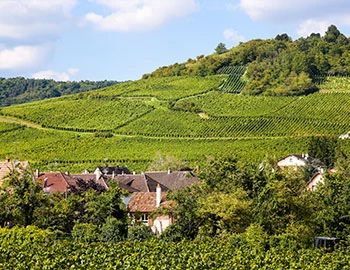
Le Rosé 2023
IGP Méditerranée, Domaine de Cabasse, 750 ml

| Grape variety: | Grenache, Syrah, Merlot |
| Producer: | Domaine de Cabasse |
| Origin: | France / Rhône / Côtes du Rhône Villages |
| Other vintages: |
Description
An expressive «southern French Rosé»
Close your eyes and dream of the Mediterranean: this rosé is not labelled ‘Méditerranée’ for nothing. With its practical screw cap, you'll want to take it to the beach chilled. But the terrace or swimming pool will do just as well.
Bouquet: pink grapefruit, apple, red berries, floral touch. Wonderfully fresh, lively and uncomplicated on the palate. It flows!
Ideal for picnics thanks to the practical screw cap. Pack it in: Vegetables with dip, cold meat, goat's cheese with crispy baguette and a fresh vegetable tart.
Wine expertise since 1844!
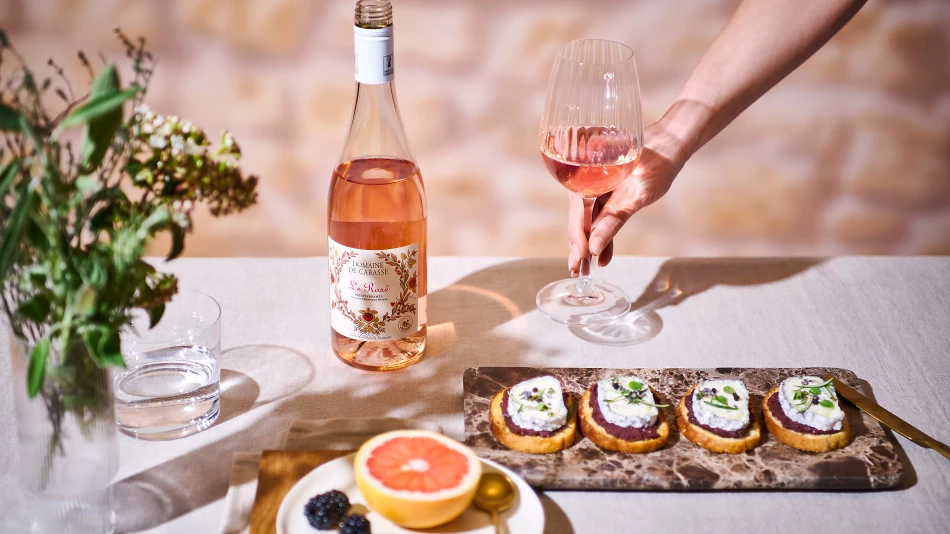
Selecting wines and spirits has been our great passion for more than 180 years. Every day, we do everything we can to find the perfect wine for every dish, every occasion and every taste.
Spring in a glass
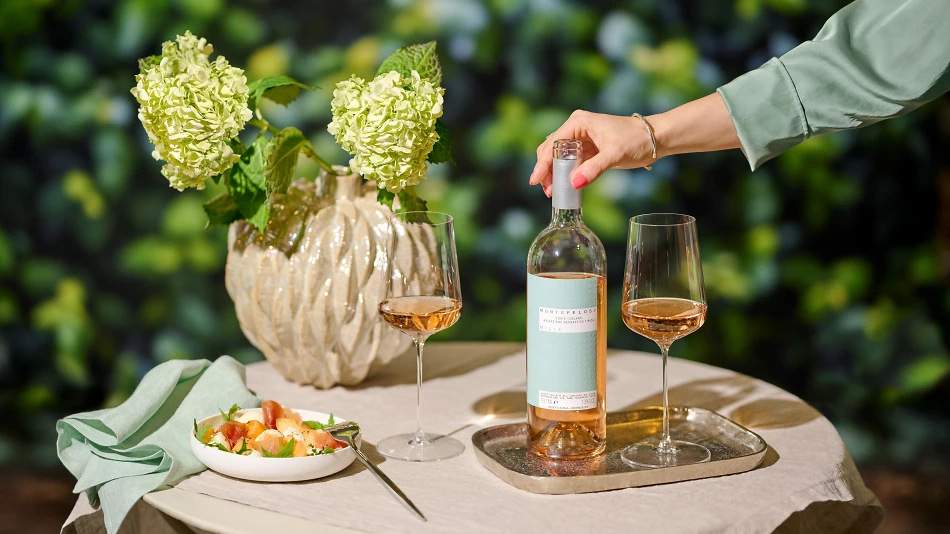
Discover our «Spring by the glass»: these are refreshing drops that perfectly match the season at reduced prices, valid until 30 April 2025.
Attributes
| Origin: | France / Rhône / Côtes du Rhône Villages |
| Grape variety: | Grenache, Syrah, Merlot |
| Ripening potential: | 1 to 4 years |
| Drinking temperature: | 10 to 12 °C |
| Food Pairing: | Vegetable flan, quiche, Vegetable pie, Cold fish dish, dried meat, Cheese board, Pizza or Flammkuchen, Bouillabaisse |
| Volume: | 13.0 % |
| Note: | Contains sulphites |
Domaine de Cabasse
This winery is situated amidst vines between the towns of Séguret and Sablet, a half-hour drive from Orange, or Châteauneuf-du-Pape. The origins of the Domaine de Cabasse date back to when the Papal seat was in Avignon. Over time, the original Italian name Casa Bassa (the house below the village) became Cabasse.
In 1990, the Swiss Häni family acquired the domaine and worked continuously to establish the reputation it enjoys today. In 2012, the Baudry family bought the entire hotel and winery and continues to manage it with the same attention to high quality.
The estate now covers 34 hectares in the municipalities of Séguret, Sablet and Gigondas and cultivates a wide range of grape varieties: Syrah, Grenache, Mourvèdre, Counoise, Carignan, Clairette and other white grape varieties. These communes are some of only 16 villages which may use their name along with the Côtes-du-Rhône Villages appellation. The plots are not overly large and are surrounded by hedges and trees that protect the vines from the cold mistral which can blow violently from the north. Otherwise, the climate in the already very broad Rhone valley is Mediterranean. The soils are mainly composed of weathered limestone with varying clay, sand and stone content.
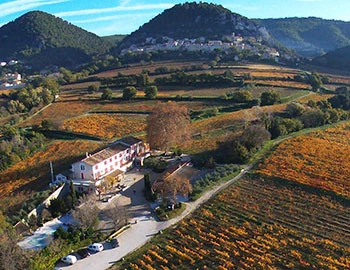
Syrah
A hint of pepper
The legend stubbornly persists that the Syrah variety came from the Persian city of Shiraz. Yet, researchers have shown that it is a natural crossing of two old French varieties: the red Dureza from the Rhône Valley and the white Mondeuse blanche from Savoy. Wines from Syrah are gentle and concentrated. They smell of dark berries, violets and liquorice, and amaze with a piquant touch of white pepper. As varietal wines, they are found on the northern Rhone, as in the Hermitage or Côte Rôtie appellations, as well as in Swiss Valais. In the southern Rhône Valley, Syrah is often wedded with Grenache and Mourvèdre. In 1832, a Frenchman brought the variety to Australia, where it became the emblem of the national wine industry. There, the weightiest versions develop with typical notes of tar and chocolate.
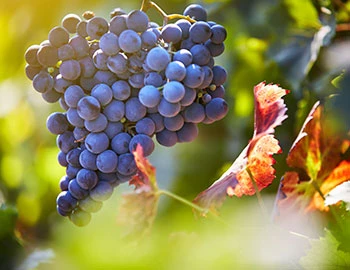
Merlot
Everybody’s darling
Merlot is the most charming member of the Bordeaux family. It shines with rich colour, fragrant fullness, velvety tannins and sweet, plummy fruit. It even makes itself easy for the vintner, as it matures without issue in cool years as well. This is in contrast to the stricter Cabernet Sauvignon, which it complements as a blending partner. Its good qualities have made the Merlot famous worldwide. At over 100,000 hectares, it is the most-planted grape in France. It also covers large areas in California, Italy, Australia and recently in Eastern Europe. The only catch is that pure Merlot varieties rarely turn out well. Its charm is often associated with a lack of substance. Only the best specimens improve with maturity. They then develop complex notes of leather and truffles. This succeeds in the top wines from the Bordeaux appellation of Pomerol and those from Ticino, among others.
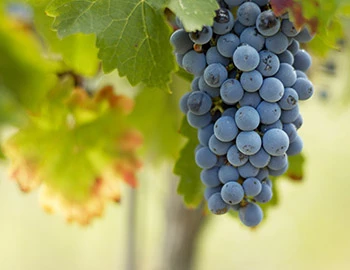
Grenache
Grenache seldom comes alone
Spaniards and Sardinians make the Grenache contentious: both claim it originated from their country. In fact, it had already appeared in both places by the 16th century. But a large number of mutations in Spain indicates that it has deeper roots on the Iberian Peninsula. The Grenache is meaty and spicy, with a wonderful, fruity sweetness and rich aromas of blackberry, cassis, plums and pepper. Under the name Garnacha, it contributes fullness to the Rioja. In Sardinia it is called Cannonau, where it yields strong, expressive wines. But its stronghold is in France. Grenache is the star in Châteauneuf-du-Pape and streams into many other assemblages from the south. Its preferred partners are Syrah and Mourvèdre. This blend is also very popular abroad. In Australia, these wines are simply called "GSM".
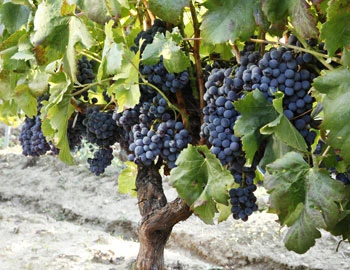
Rhône
Rhône: northern power, southern charm
The Rhône’s source is in Valais, and it flows into the Mediterranean 800 kilometres to the south. In the last 200 kilometres of its course, it is lined with vines which yield a range of red crus that are among the most prestigious wines in the world – for example, on the spectacular cliffs of the Hermitage Mountains, or in the gravelly terraces of Châteauneuf-du-Pape. The river valley, however, is also a rich source of characterful white wines and affordable, high-quality, everyday red wines.
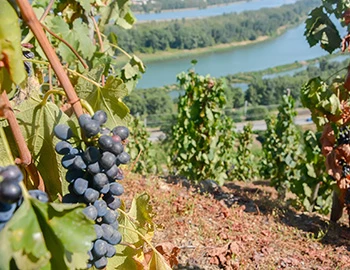
France
France – Philosophy in a bottle
According to French philosophy, wine should be an expression of the soil and climate. They use the word “terroir” to describe this. Terroir makes every wine different, and many especially good. French wine is regarded worldwide as an expression of cultural perfection. The French believe that humans are responsible for the quality of the berries, the vine variety for their character, and nature for the quantity. This philosophy can be expressed succinctly as: “the truth is the vineyard, not the man.”
